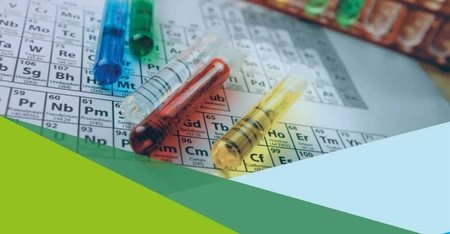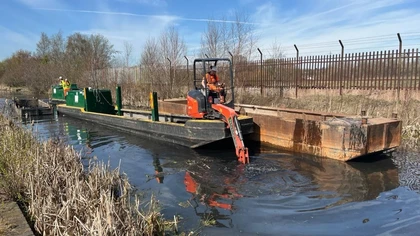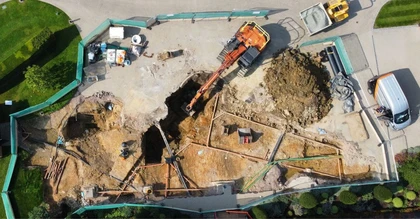Organic matter in soils and sediments is widely distributed over the earth’s surface occurring in almost all terrestrial and aquatic environments. Soils and sediments contain a large variety of organic materials ranging from simple sugars and carbohydrates to the more complex proteins, fats, waxes, and organic acids.
Total Organic Carbon (TOC) is quite simply the organic carbon within a sample. However, it will not include the organic carbon from volatile compounds as these are lost during digestion and drying. TOC is a parameter in the Waste Acceptance Criteria (WAC) test. TOC is the only true measure of organic carbon present in a soil.
TOC methods utilise heat and oxygen, chemical oxidants or a combination of these to convert organic carbon to Carbon dioxide (CO2). The evolved CO2 is then measured.
The determination of total organic carbon is an essential part of any site characterisation or ecological assessment since its presence or absence can markedly influence how chemicals will react in the soil or sediment.
Total Organic Compounds Testing Methodology and Measurement
- To test for Total Organic Carbon, a weighed portion of the air dried and ground sample is treated with sulphurous acid at 40°C for 16 hours in order to remove any inorganic carbon species which react to form carbon dioxide. The excess sulphurous acid is then evaporated off.
- The sample is combusted at 1600°C in an oxygen atmosphere using an induction furnace
- The combustion gases then pass through an infra-red cell which measures the carbon dioxide (CO2) concentration.
- The total quantity of carbon, which is now purely organic carbon, is calculated and reported as a percentage of the original mass of sample.
Total Organic Carbon water quality
Total Organic Carbon (TOC) in water quality pertains to the total amount of carbon found in organic compounds within a water sample. It's a crucial factor in evaluating the cleanliness of water, with its measurement indicating the presence of organic pollutants.
TOC testing is a preferred analytical technique in various sectors, such as pharmaceuticals, semiconductors, and power generation. It aids in determining if a solution is suitable for certain processes and if it complies with regulatory standards for water purity.
TOC is comprised of different elements, including particulate organic carbon, dissolved organic carbon, and volatile organic carbon. Among these, dissolved organic carbon often makes up the largest component of TOC in most water samples.
Different types of TOC analyzers are used for assessment. They function by oxidizing organic carbon into carbon dioxide (CO2), which is then measured to determine the total organic carbon content.
Total Organic Carbon analyzer
The Total Organic Carbon (TOC) analyzer is a critical tool for assessing the amount of organic carbon content in a sample. These analyzers function by oxidizing organic carbon to CO2 and measuring the resultant gas. They have been in operation since the 1960s, signifying their importance in water quality assessments and process monitoring.
TOC analyzers use either differential or direct methods to analyze a sample. In the differential method, known as TC-IC, both total carbon (TC) and total inorganic carbon (TIC) are measured separately, and TOC is then calculated by subtracting TIC from TC. This technique is suitable for samples where TIC is less than or similar in size to TOC.
Moreover, TOC analyzers employ various oxidation techniques such as:
- Photocatalytic Oxidation, where UV light exposure is used to convert organics into carbon dioxide.
- Chemical Oxidation, where persulfate and UV light transforms organics into carbon dioxide.
- High-Temperature Combustion, which uses oxidation catalysts in a heated chamber to transform organics into carbon dioxide.
The main advantage of using this technique is that the elevated temperatures ensure the combustion of all the carbon forms present. At SOCOTEC, we have an automated high throughput method for the Analysis of TOCs and can offer fast turnaround times.
Want to find out more about SOCOTEC's Environmental Science services?
You might also be interested in:
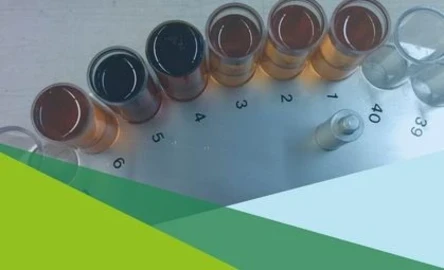
Decoding Transformer Performance with Oil Testing

Inside PFAS: Sampling, Science & The Future
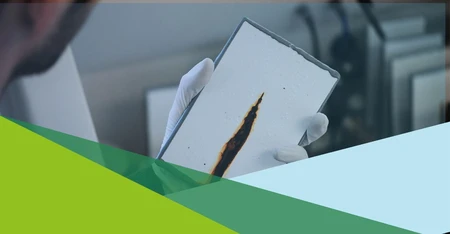
Paints and Coatings - Start to finish
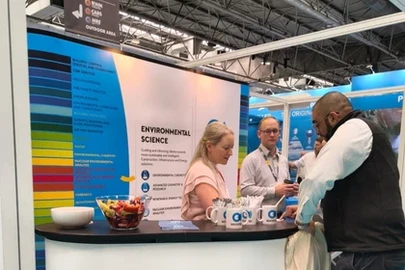
SOCOTEC UK and Ireland Makes Strong Impact at ESS Expo 2025
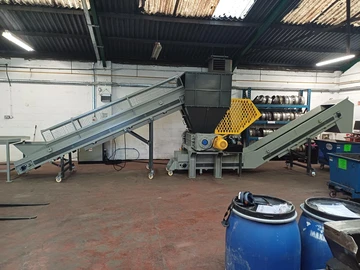
SOCOTEC UK & Ireland Enhances Testing Capabilities with New Primary Shredder at Burton Facility

Street Works Protocol: Everything You Need to Know Before the Deadline
